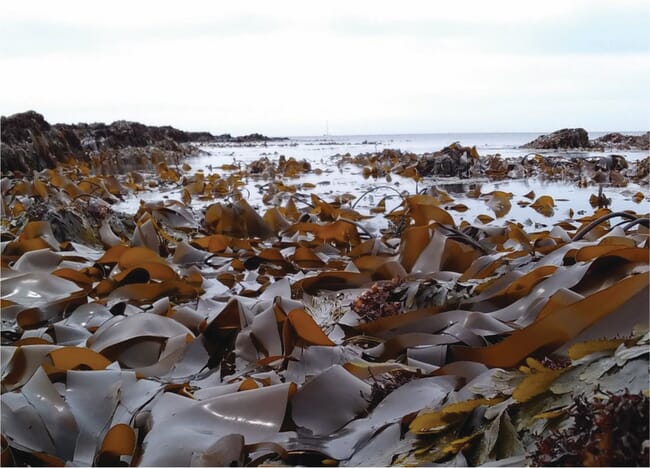Whilst viruses have been known to infect certain types of seaweed, a new study published in the ISME Journal is the first to describe them in kelps, which are important both ecologically and commercially.
Researchers from the Marine Biological Association (MBA) and the University of Plymouth examined Laminaria and Saccharina kelps commonly occurring around the British Isles, and which include target species for the emerging kelp biofuel industry. They detected viruses by searching at the molecular level for their DNA 'fingerprint', and their presence was confirmed by observation of symptoms of infection using conventional and electron microscopy.
Kelps are the largest brown seaweeds, engineering temperate rocky coastlines into complex habitats comparable to terrestrial forests, which support extensive marine ecosystems. They are extremely valuable to humans for—amongst many other uses—direct consumption, sources of hydrocolloids and pharmaceuticals, and biofuels.

© The Marine Biological Association
In the field, these viruses were found to have infected two thirds of their host populations; however, their biological impact remains unknown and the authors warn that this unexplored pool of viruses could have unexpected effects in cultivation conditions.
Lead author of the study, Dean McKeown is a University of Plymouth-funded PhD student based in the MBA’s Viral and Molecular Ecology group, and co-supervised by Drs Declan Schroeder (MBA) and Murray Brown (School of Biological and Marine Sciences). The study also made use of the cutting-edge technology housed within the University’s Electron Microscopy Centre.
Dr Schroeder said: "History has taught us the havoc caused by the destructive effects of viruses in agriculture, especially when embarking on large-scale monoculture farming practices. The kelp biofuel industry therefore needs to be aware of this virus lurking in the genome of many kelp species."
The kelp species examined were oar weed (Laminaria digitata), northern kelp or cuvie (Laminaria hyperborea) and sugar kelp (Saccharina latissima). Dr Brown added: “Our research is being extended to include commercially important kelps farmed extensively in south-east Asia. If detected in these, the multi-million dollar global kelp industry could be affected.”


